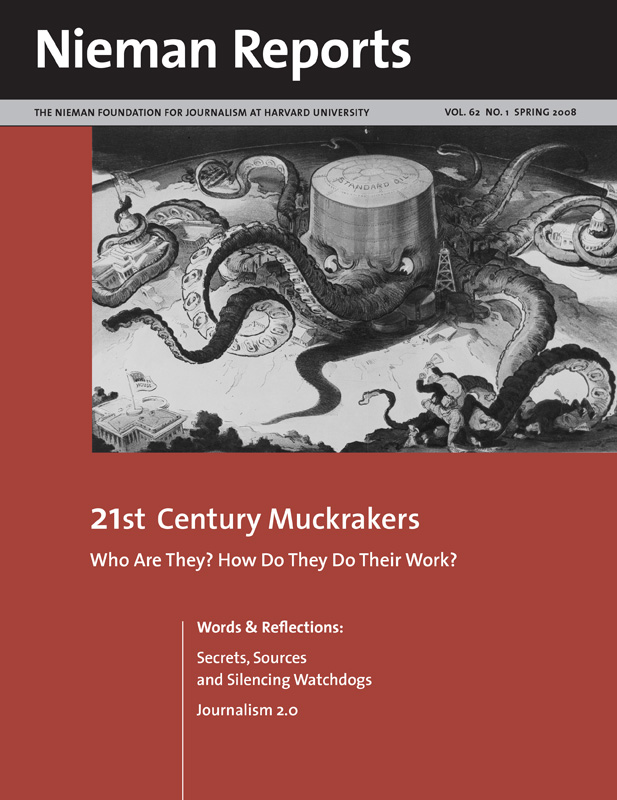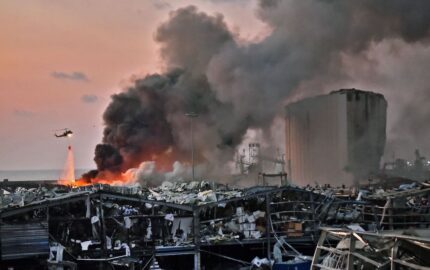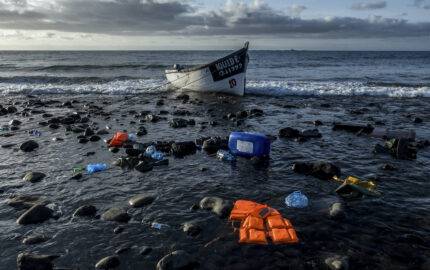When I was invited to become a member of the International Consortium of Investigative Journalists (ICIJ) about 10 years ago, most journalists in Brazil still wondered what the words “investigative journalism” actually meant. This wasn’t because they weren’t knowledgeable about journalistic investigation. In fact, the opposite was true; quality news outlets in Latin America have a long-standing tradition of putting some degree of good investigation into all journalism assignments. To see these two words forced together, as though designating something special, seemed strange. How could we do our jobs without embracing investigative techniques?
Generations of journalists in Latin America cut their teeth and trained themselves for decades under enduring dictatorships and other sorts of autocracies. Being a journalist simply meant going after the scoundrels within the government. Scrutinizing corrupt and colluding politicians serving as members of Congress was also a daily beat for us. Our watchdog role was very clear, and everybody in a newsroom would easily know who should be under severe journalistic surveillance.
Well, that description fit our newsrooms back then. Now, most Latin American countries are democracies, many of which are thriving. For journalists this means that things are not so clear-cut anymore when it comes to chasing newsworthy stories. While it used to be easy to identify the good and the bad guys in government, the political leaders now in power were the ones who used to feed journalists information about the dictators and generals. This changed situation puts a newer—and arguably a greater—demand on journalists to plow even deeper into the records, policies and practices of these new leaders since the incumbents and opposition politicians should receive the same scrutiny from journalists. And in these times, high-quality newspapers and broadcast stations (TV and radio) throughout Latin America have come to understand the benefits of adopting fully the concept of investigative journalism. So much so, in fact, that the words have become a synonym for superior reporting practices used in extensive coverage of major news stories.
Through my connections with ICIJ, I’ve had the opportunity to be in touch with highly respected investigative journalists from many countries during the past decade. At ICIJ meetings, I’ve participated in intense exchanges about experiences and techniques of this kind of reporting, and year-by-year the phrase “investigative journalism” has become much more real to me.
RELATED WEB LINK
Download “Pretty Good Privacy” »One indelible memory is from almost 10 years ago, when I first learned about encryption software, a novelty at that time. Back in Brazil I shared it with some well-positioned sources within the federal government, and immediately I developed a secure channel for exchanging critical information with officials who otherwise refrained from talking with me. Today this software, called Pretty Good Privacy (PGP), is widely known, even if a little outdated.
ICIJ’s Consortium
ICIJ describes itself as “a collaboration of the world’s preeminent investigative reporters.” Assembled in 1997 as a project of the Center for Public Integrity, ICIJ now involves nearly 100 journalists in 50 countries who have come together in person only infrequently during the past decade because of the high cost of getting everyone to a single location. This absence of regular personal contact among members is perhaps the major obstacle to fully realizing the consortium’s collaborative mission.
RELATED ARTICLE
“Seeking New Ways to Nurture the Capacity to Report”
– Charles LewisWhen we have been brought together—thanks to the tireless efforts of Chuck Lewis, ICIJ’s visionary founder—the person-to-person exchange of information and experiences proved to be a major asset for the members. We have a secure (and private) online listserv to which all members belong, but it is hardly a substitute for face-to-face conversation, especially when the actors involved are nongregarious animals, also known as investigative journalists.
Through ICIJ, I’ve taken part in some cross-border investigative projects. Such endeavors are another goal of the consortium in this era of globalization. Consolidating a trustworthy network of professional journalists in various countries to collaborate on specific projects is an ongoing effort. In theory, this digitally connected group would be able to gather (and share) the kind of information that none of them could find on their own and thus draw public attention to newsworthy stories that otherwise would not exist.
My first ICIJ project happened in 2000 when a group of us investigated U. S. military and intelligence aid to major Latin American nations since the cold war’s end. At that time, most Latin American countries had already embraced some sort of democratic path, and nearly all U.S. aid to the region since 1990 had been earmarked for the drug war, irrespective of whether it had been provided by the departments of defense or state, the Central Intelligence Agency, or the Drug Enforcement Administration. The result of our work on this investigation was a disappointment to those of us who worked on this project. Possibly this was because it was one of ICIJ’s first concerted efforts, and the team wasn’t yet extensively trained to work together.
After that, in 2003 and 2004, I embarked on a bolder ICIJ enterprise assignment: the Global Integrity Index. The aim was to track corruption, accountability and openness in 25 countries with democratically elected governments. Journalists in each country worked on the ground with the help of researchers, social scientists, and peer review panelists. In the end, we created a set of “integrity indicators” that were designed to measure the presence and effectiveness of anticorruption mechanisms.
RELATED WEB LINK
ABRAJIThis project evolved into an independent organization called Global Integrity.As a direct consequence of my ICIJ membership, I helped to create the Associação Brasileira de Jornalismo Investigativo (ABRAJI) in 2002. According to a study published by the Center for International Media Assistance in 2007, ABRAJI is now one of the world’s largest investigative journalists’ associations—with more than 1,000 members and most of them active—having trained more than 2,500 journalists in computer- assisted reporting (CAR), corruption coverage, and security issues.
My many years of being involved with these associations leaves me with two lasting impressions:
Funding Global Reporting
At ABRAJI, in the beginning we relied a little on membership fees and a lot on donations made by entities like the Knight Center for Journalism at the University of Texas at Austin and the McCormick Tribune Foundation. Those grants were used as seed money to get started, but ABRAJI still has what I’d call a feeble infrastructure. (Only one person works full-time for the association; all the others contribute on a voluntary basis.)
Fortunately, investigative journalism is visible now in newsrooms in nearly every country. Given this, associations that foster learning in investigative techniques might draw greater attention from journalists in the years ahead. With the risk of sounding hubristic, I’d like to believe that news outlets will start to notice the relevance of these training initiatives and collaborative opportunities and would begin to support them more vigorously. Realistic as I am, I recognize this as more wishful thinking than a feasible prediction.
My experience tells me that to some degree investigative journalism—including its training and practice—is hardwired within journalists themselves. If this is so, it can be a waste of time to lament the dismal amount of support that this work we do receives from those who own major news media outlets. Doing so leads only to inertia. Instead, quit carping and take a look at ICIJ and Investigative Reporters and Editors (IRE) in the United States, or seek out associations in your own backyard. Or start one, if one isn’t already there. We took a dive in those waters in Brazil, and each year we’re swimming a bit stronger.
Fernando Rodrigues, a 2008 Nieman Fellow, is a reporter and political columnist for the daily newspaper, Folha de S. Paulo, which can be read at www.folha.com.br, and for the Internet news portal UOL, located at www.uol.com.br. He serves as ABRAJI’s vice president. His e-mail is frodriguesbsb@uol.com.br.
Generations of journalists in Latin America cut their teeth and trained themselves for decades under enduring dictatorships and other sorts of autocracies. Being a journalist simply meant going after the scoundrels within the government. Scrutinizing corrupt and colluding politicians serving as members of Congress was also a daily beat for us. Our watchdog role was very clear, and everybody in a newsroom would easily know who should be under severe journalistic surveillance.
Well, that description fit our newsrooms back then. Now, most Latin American countries are democracies, many of which are thriving. For journalists this means that things are not so clear-cut anymore when it comes to chasing newsworthy stories. While it used to be easy to identify the good and the bad guys in government, the political leaders now in power were the ones who used to feed journalists information about the dictators and generals. This changed situation puts a newer—and arguably a greater—demand on journalists to plow even deeper into the records, policies and practices of these new leaders since the incumbents and opposition politicians should receive the same scrutiny from journalists. And in these times, high-quality newspapers and broadcast stations (TV and radio) throughout Latin America have come to understand the benefits of adopting fully the concept of investigative journalism. So much so, in fact, that the words have become a synonym for superior reporting practices used in extensive coverage of major news stories.
Through my connections with ICIJ, I’ve had the opportunity to be in touch with highly respected investigative journalists from many countries during the past decade. At ICIJ meetings, I’ve participated in intense exchanges about experiences and techniques of this kind of reporting, and year-by-year the phrase “investigative journalism” has become much more real to me.
RELATED WEB LINK
Download “Pretty Good Privacy” »One indelible memory is from almost 10 years ago, when I first learned about encryption software, a novelty at that time. Back in Brazil I shared it with some well-positioned sources within the federal government, and immediately I developed a secure channel for exchanging critical information with officials who otherwise refrained from talking with me. Today this software, called Pretty Good Privacy (PGP), is widely known, even if a little outdated.
ICIJ’s Consortium
ICIJ describes itself as “a collaboration of the world’s preeminent investigative reporters.” Assembled in 1997 as a project of the Center for Public Integrity, ICIJ now involves nearly 100 journalists in 50 countries who have come together in person only infrequently during the past decade because of the high cost of getting everyone to a single location. This absence of regular personal contact among members is perhaps the major obstacle to fully realizing the consortium’s collaborative mission.
RELATED ARTICLE
“Seeking New Ways to Nurture the Capacity to Report”
– Charles LewisWhen we have been brought together—thanks to the tireless efforts of Chuck Lewis, ICIJ’s visionary founder—the person-to-person exchange of information and experiences proved to be a major asset for the members. We have a secure (and private) online listserv to which all members belong, but it is hardly a substitute for face-to-face conversation, especially when the actors involved are nongregarious animals, also known as investigative journalists.
Through ICIJ, I’ve taken part in some cross-border investigative projects. Such endeavors are another goal of the consortium in this era of globalization. Consolidating a trustworthy network of professional journalists in various countries to collaborate on specific projects is an ongoing effort. In theory, this digitally connected group would be able to gather (and share) the kind of information that none of them could find on their own and thus draw public attention to newsworthy stories that otherwise would not exist.
My first ICIJ project happened in 2000 when a group of us investigated U. S. military and intelligence aid to major Latin American nations since the cold war’s end. At that time, most Latin American countries had already embraced some sort of democratic path, and nearly all U.S. aid to the region since 1990 had been earmarked for the drug war, irrespective of whether it had been provided by the departments of defense or state, the Central Intelligence Agency, or the Drug Enforcement Administration. The result of our work on this investigation was a disappointment to those of us who worked on this project. Possibly this was because it was one of ICIJ’s first concerted efforts, and the team wasn’t yet extensively trained to work together.
After that, in 2003 and 2004, I embarked on a bolder ICIJ enterprise assignment: the Global Integrity Index. The aim was to track corruption, accountability and openness in 25 countries with democratically elected governments. Journalists in each country worked on the ground with the help of researchers, social scientists, and peer review panelists. In the end, we created a set of “integrity indicators” that were designed to measure the presence and effectiveness of anticorruption mechanisms.
RELATED WEB LINK
ABRAJIThis project evolved into an independent organization called Global Integrity.As a direct consequence of my ICIJ membership, I helped to create the Associação Brasileira de Jornalismo Investigativo (ABRAJI) in 2002. According to a study published by the Center for International Media Assistance in 2007, ABRAJI is now one of the world’s largest investigative journalists’ associations—with more than 1,000 members and most of them active—having trained more than 2,500 journalists in computer- assisted reporting (CAR), corruption coverage, and security issues.
My many years of being involved with these associations leaves me with two lasting impressions:
- There are the enormous benefits that come from conferences and seminars that enhance networking and allow for the sharing of experiences with other journalists through which one always learns new reporting techniques and improves skills such as CAR. This kind of invaluable training can’t be found in any other way.
- Investigative journalism still lacks support and funding from major media organizations throughout the world, with few exceptions. The initiatives I’ve participated in so far have been journalist-driven and have lacked the kind of solid institutional support that would make a big difference in their success. In general, funding comes from membership association fees and from nonprofit foundations throughout the world. Neither ICIJ nor ABRAJI accept government funding.
Funding Global Reporting
At ABRAJI, in the beginning we relied a little on membership fees and a lot on donations made by entities like the Knight Center for Journalism at the University of Texas at Austin and the McCormick Tribune Foundation. Those grants were used as seed money to get started, but ABRAJI still has what I’d call a feeble infrastructure. (Only one person works full-time for the association; all the others contribute on a voluntary basis.)
Fortunately, investigative journalism is visible now in newsrooms in nearly every country. Given this, associations that foster learning in investigative techniques might draw greater attention from journalists in the years ahead. With the risk of sounding hubristic, I’d like to believe that news outlets will start to notice the relevance of these training initiatives and collaborative opportunities and would begin to support them more vigorously. Realistic as I am, I recognize this as more wishful thinking than a feasible prediction.
My experience tells me that to some degree investigative journalism—including its training and practice—is hardwired within journalists themselves. If this is so, it can be a waste of time to lament the dismal amount of support that this work we do receives from those who own major news media outlets. Doing so leads only to inertia. Instead, quit carping and take a look at ICIJ and Investigative Reporters and Editors (IRE) in the United States, or seek out associations in your own backyard. Or start one, if one isn’t already there. We took a dive in those waters in Brazil, and each year we’re swimming a bit stronger.
Fernando Rodrigues, a 2008 Nieman Fellow, is a reporter and political columnist for the daily newspaper, Folha de S. Paulo, which can be read at www.folha.com.br, and for the Internet news portal UOL, located at www.uol.com.br. He serves as ABRAJI’s vice president. His e-mail is frodriguesbsb@uol.com.br.



